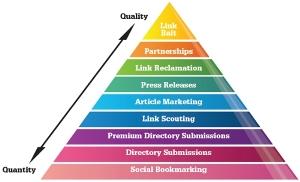WordPress, Joomla and Drupal are all open source platforms. They allow users to create sites and blogs of any type without having to purchase the actual CMS software. Which of these is the best is a topic of heated debate among webmasters and site owners, but the numbers do give some revealing information about the performance of the platforms and their popularity relative to other options, such as paid CMS software.
Movement in Trends
Over the years, there has been some considerable movement in the popularity of the various platforms. For instance, Google Trends shows that, in the period of time spanning 2006 to 2011, Drupal, Joomla and WordPress have all seen increases in search volume index over that time-frame. At the same time, .net and ASP, two of the largest development platforms for commercial sites have shown decreases in the search volume index.
While this doesn’t clarify which of these three open platforms are the most popular, it does demonstrate that there is an increasing interest in open platforms for web development. An article in Kovshenin.com also notes that as an example of this, Drupal is very popular in India while Germans, Italians and Russians seem to gravitate towards Joomla!
Where those three open-source platforms show up in the numbers does demonstrate that they are all showing growth. Drupal lags far behind WordPress and Joomla! However, WordPress is notable for the large number of easy to use themes that operate on the platform – many of which are available free – which may contribute to its overall popularity. You can create the look and feel of your site exactly the way you want. WordPress offers a fully integrated dashboard along with a large selection of WordPress themes.
WordPress’s Impressive Numbers
However, Joomla may be asserting itself as a viable competitor for the WordPress platform; WordPress still remains a hugely important force on the Internet. According to an info graphic posted on Yoast.com, 48% of the top blogs ranked by the site Technorati use the WordPress platform. A full 39% of these blogs are self-hosted, with 9% of those blogs being hosted on the WordPress site itself.
According to the same numbers, a full 14.7% of the top 1 million websites in the world are built on the WordPress platform. This doesn’t just include websites that are built by people who are using their blog to publicize themselves or to connect with friends. For example, Ford, Harvard Law School, Honda, the NFL and even NASA all use the WordPress platform as their content management system.
If WordPress is seeing some stagnant numbers, it still occupies a vital role in creating some of the most visited websites in the world. WordPress has had 98 different versions of the content management system released with 72.4 million websites using the content management system. It is, as of the present, the most used content management system in the world. How popular? In the United States, 22 out of every 100 new domains created are running the WordPress platform. WordPress.com is the eighth most popular website in Indonesia, and Indonesians are the heaviest users of this particular platform in the world.
Comparison of Blogging Platforms – WordPress vs. Joomla vs. Drupal
Where actual usability is concerned, WordPress, Joomla and Drupal all do have their advantages. WordPress is well known for being extremely easy to use, and this largely contributes to its popularity, in all likelihood. According to some developers, the main flaw in WordPress is that it doesn’t scale quite as well as some other content management systems.
Drupal is very techie and gives developers all of the power they need to control a website. Where regular users are concerned, however, this particular content management system is so complex that it may turn off users who just want to put up a casual website. It has nearly 10,000 different modules for the system, making it easy for developers to add features to websites on request. It is also regularly the subject of new development, which gives it a Linux like appeal to those who like the feeling of working on something that is truly a community effort.
Joomla falls somewhere in between. It doesn’t have quite as many add-on features as Drupal, but it does have ones that will be very useful for most businesses. It’s slightly more scalable than WordPress, but not quite as much as Drupal. Joomla isn’t terribly difficult to use, but webmasters who are accustomed to the WordPress platform will likely find it quite a bit more complex.
WordPress vs. Tumblr
Tumblr has asserted itself as a hugely important force on the Internet. It is not a content management system in the sense that WordPress is, but it makes it very easy for users to set up a simple blog and encourages people to put up posts that are more substantial than what one would generally see on Facebook, but not quite as long as what one would see on the average blog. Its numbers over the past few years have been steadily increasing, eclipsing WordPress in some regards.


